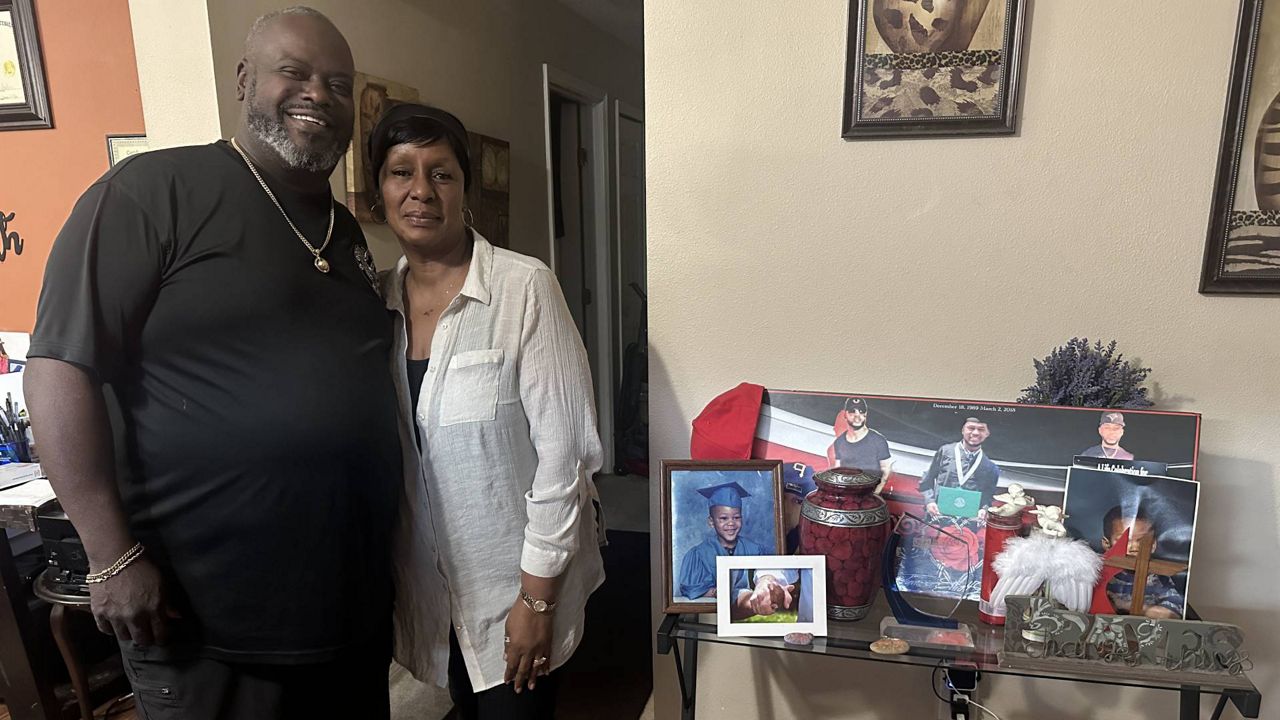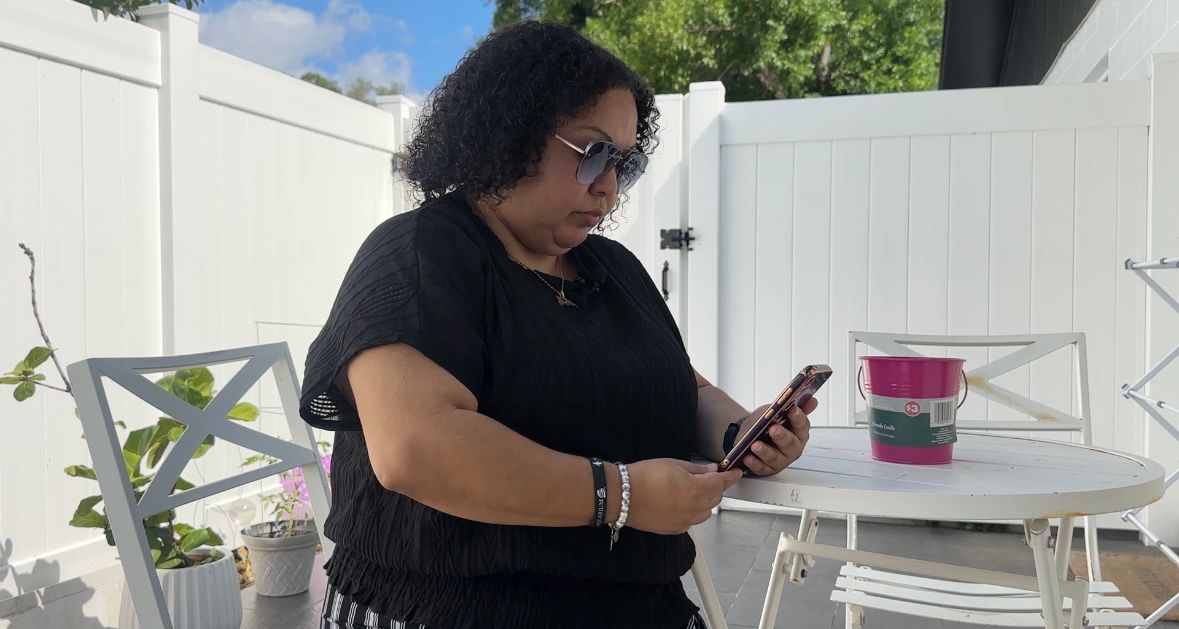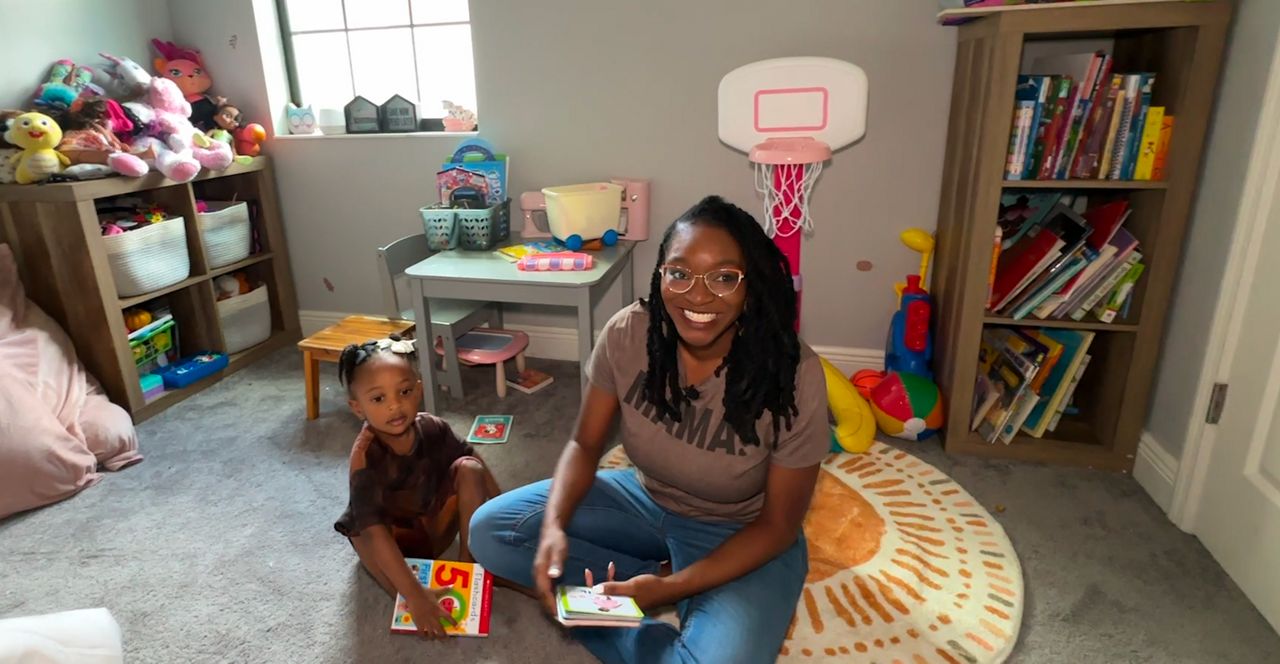FLORIDA — Life in prison without parole is a sentence meant for the worst criminals in Florida, and the toughest penalty other than a death sentence. But some call life in prison without parole "The Slow Death."
Currently in Florida there are 13,653 people serving life without parole sentences, which is just under 17 percent of Florida's prison population.
Dorian Mackeroy, 46, is one of those prisoners serving a life sentence without parole.
“Life without the parole, is called the other death penalty. Maybe it’s not through lethal injections or electric, or whatever how they do it. It’s a slow death," said Mackeroy, a prisoner convicted under the state's Prison Release Reoffender (PRR) Law.
The crimes landing Mackeroy with this sentence were two: a juvenile robbery charge from 1991 and an armed robbery charged from 1997. Mackeroy was 22 at the time he was convicted of this second offense, and he said he committed the crime with a guy he knew he shouldn't be around.
"So when I get to his house everything, he is like, ‘Let’s go rob somebody.’ I said, ’No, you crazy,'" said Mackeroy remembering that day. "I really didn’t need the money, and to this day, I still don’t know why I committed that senseless crime. I can blame it on the alcohol. That is just a scapegoat. So I have to attribute it to my immaturity. My morals that I had at the time or didn’t have.”
Robbery and armed robbery are serious charges, but in Mackeroy's cases, the victims were not physically hurt. Mackeroy does not contest his guilt, and does admit he was a danger to society....then.
“Anytime a person prays on a person’s property or persons, they are a danger to society," Mackeroy said. "Twenty-five years I have served. I don’t feel I am a danger to society at this time. I have changed. I am only a fraction of the man I used to be.”
Armed robbery rarely comes with a life sentence if no one is injured, but Mackeroy is serving that sentence. That happened to him because of a Florida law called Prison Release Reoffender, or PRR. It is essentially a two-strike law, with a timetable attached.
If a person commits a crime and ends up in prison, once released from prison a clock essentially starts. If within the next three years that person commits another crime from a list of felonies, the court must impose the statutory maximum sentence for that offense.
The maximum penalty for armed robbery is life in prison without parole.
“I love it, and it works," said Sheriff Grady Judd, Polk County. "Crime is at historic lows in Florida, so that tells us that it works."
The Polk County Sheriff remembers the tough crime years in the 1970s and 1980s in Florida, which really gave birth to the PRR law.
"I remember back in the day when the felons owned Florida," Judd said. "When you could commit a robbery with a firearm, point a gun in someones face in a store, get 10 years, and in 22 months were out robbing stores again. That doesn’t happen. Florida is safer because of these laws."
But others disagree, like Republican State Senator Jeff Brandes.
“We are catching a lot of people in this net of PRR that really don’t deserve life sentences," Brandes said.
Brandes has been working for the past five years to revise the PRR law in the Florida Legislature, calling the law archaic.
“They were in place at a time where the world was a very different place," Brandes said. "We didn’t have the data. Now we have the data and research, and what we are finding is around the country, states are reviewing these types of laws and making changes."
The law does present a big cost to the state each year, especially when considering some of the prisoners would not be serving life sentences if there wasn't PRR.
Florida Department of Corrections annual reports show it cost $24,265.00 per year to house an inmate. Currently, there are roughly 13,600 life-in-prison-without-parole inmates in the state. That works out to a cost of more than $331 million per year.
As mentioned, Mackeroy began his prison sentence at 22 years old. He is now 46, and he could be in prison for another 50 more years before natural death.
"We should be funding more law enforcement officers," Brandes said. "We should be putting it toward improved pay and conditions for law enforcement because that actually reduces crime in the state of Florida."
Those numbers do not faze Judd.
”They cost us a whole lot more economically when they are on the streets stealing everyday. And that is what prolific offenders do," Judd said.
Judd cited a study by the Florida Sheriff's Association looking at repeat offenders, which said in Florida the recidivism rate is about 25% within three years of a state prisoner's release. That number jumps to 35% within five years. In fact, this study finds that more than 95 percent of all prisoners are repeat offenders.
“Before we had these laws, crime was like this (points up)," Judd said. "After we had these laws, crime is like this (points down). Those that want to change this law fail to recognize that we have a very forgiving criminal justice system."
"We chip away at it every year," said Brandes, talking about fighting to change the PRR law. "The thing is, criminal justice work is the hardest work you do in the legislature.”
Many mothers of those serving PRR sentences are fighting for change – moms like Mackeroy's.
“I really don’t think the crime fits the time," said Carolyn Youngblood, Mackeroy's mother.
She like many others hold on to hope this law will come under the microscope soon.
"Gotta keep the faith," she said with tears in her eyes. "I just hope I'll be here to see it. I don’t like this crying stuff.”
Our partners at the Tampa Bay Times reached out to Mackeroy's victim in the armed robbery case. She did not want to comment, saying she still has anxiety and panic attacks resulting from the crime.
Mackeroy said, to this day, he is beyond remorseful.
"I changed for the victim," Mackeroy said.
He said at this point he continues to focus on what he can do, and in his 24 years behind bars, he said he has participated in 70 self- betterment programs and received his GED.
He tried for clemency, but was denied under Governor Rick Scott.
“I am going to fight for change to this law until my last breath," said Mackeroy.
He knows he may be fighting for the rest of this life.
“What is life without freedom? I am still searching for that answer," said Mackeroy.
The Florida PRR Families United group works to bring awareness statewide about this law.
This article was published in partnership with The Marshall Project, a nonprofit news organization covering the U.S. criminal justice system. Sign up for its newsletter, or follow The Marshall Project on Facebook or Twitter.









